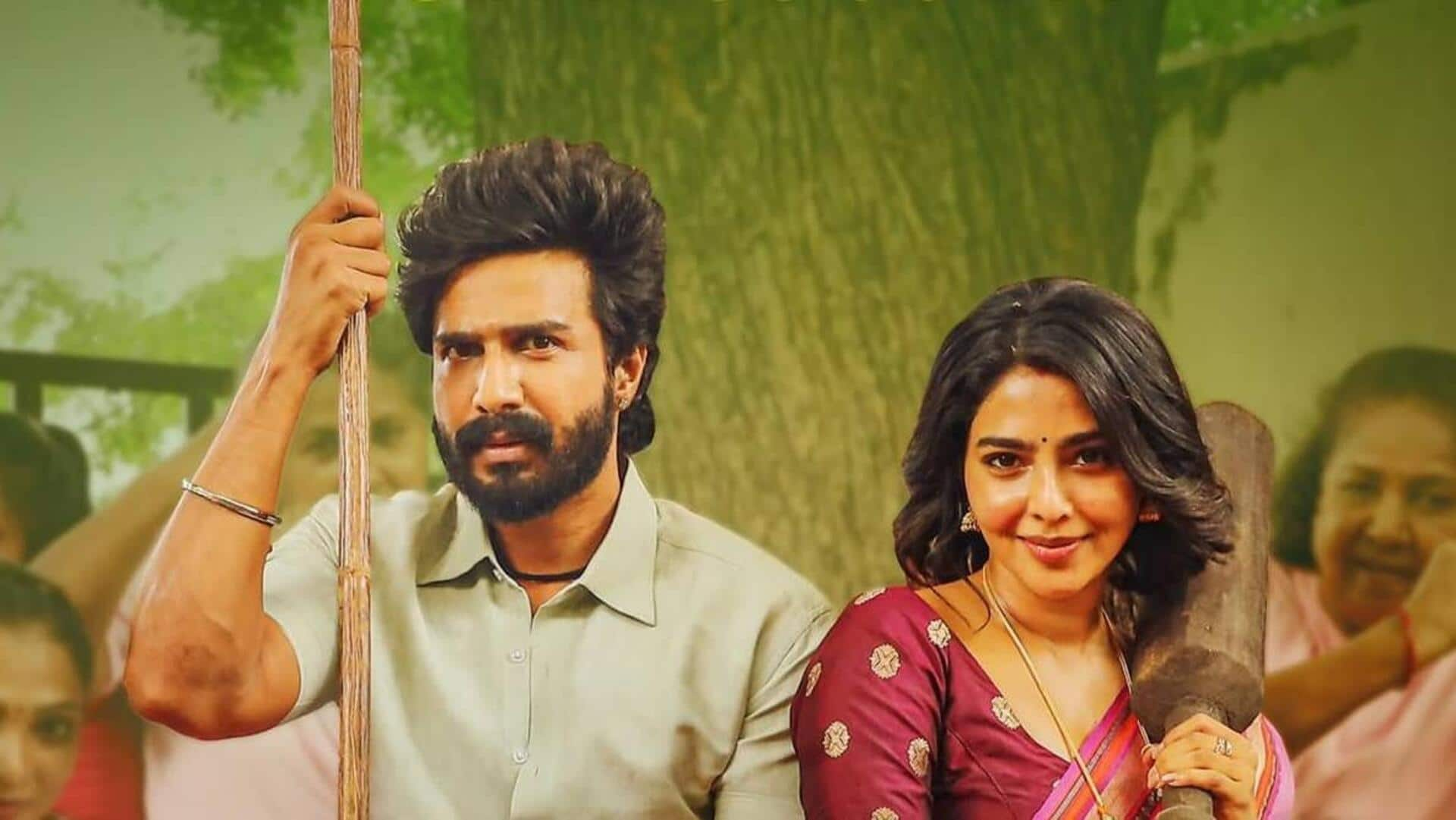
#NewsBytesRecommends: Aishwarya Lekshmi's 'Gatta Kushti' explores women's wrestle with sexism
What's the story
Chella Ayyavu's Gatta Kushti (2022) is described as a romantic sports dramedy. The Tamil film stays loyal to those genres, but more than anything else, it is a confident, scathing, piercing feminist tale that upends the tropes of masala films and puts its female—not the male—lead at the center stage. An exploration of women's incessant wrestle with sexism, GK should be on your watchlist.
Plot
First, get familiar with storyline
GK—available on Disney+ Hotstar and Netflix—revolves around Keerthi (Aishwarya Lekshmi), who's an excellent wrestler, much to the dismay of society and most of her family. Her "manly" short hair and inclination toward wrestling become a deterrent to her marriage until her family hides her real identity and marries her to Veera (Vishnu Vishal), an uneducated, unemployed man and a direct product of toxic masculinity.
#1
From start to end, 'GK' deals with sexism's consequences
Right from the first frame, GK is sure about its path. While sometimes it shouts "feminism" from the rooftops, its storyline and treatment of issues such as sexism, internalized misogyny, and the repercussions of toxic masculinity remain consistently on point. Veera never had a shot at redemption since his misogynist-to-the-neck uncle fed him with lectures about how to keep women under his thumb.
#2
Keethi is representation of larger Indian audience
Keerthi becomes a microcosmic representation of women all across the nation who have to repeatedly lock their dreams and mournfully throw the keys away, sometimes forever. Keerthi talks about wrestling not just on the mat but also in her own home, and this reverberates everywhere and impacts women of all ages across professions. Women's agency is stunted, and patriarchy ruthlessly clips their wings.
#3
Discerning look at problems of arranged marriage setup
GK also holds a mirror to the rotten, misogynistic, and business-like scenario of the arranged marriage market. While it may be advertised as a "marriage of equals," it never is, with women's height, complexion, and adeptness in household chores scanned, discussed, and dissected as if her life depended on it. Not to mention, the responsibility of "fixing" her "real" home also falls upon her.
#4
Subverts tropes, keeps gliding well on humor
Despite dealing with an intense issue, GK doesn't let the mood become too heavy and keeps pedaling ahead through its humor. During a consequential scene, the tropes are reversed, and Veera becomes the "damsel in distress" whom Keerthi valiantly "rescues," while the entire town finds its jaw on the floor in awe. Who said knights in shining armor belong to just one gender?
#5
Offers insight into patriarchal conditioning of men, women
GK repeatedly reinforces the idea that misogyny doesn't have a gender; it never did. It's the conditioning that leads men/women to become either liberal or orthodox. Veera spends all his time with stinky, patriarchal men and, thus, is egged on by them to become crass and heartless. On the other hand, Keerthi's uncle is her biggest cheerleader! Misogyny is perpetrated by minds, not genders.
Verdict
Watch 'Gatta Kusthi' today!
GK is an inventive tale of courage and an effort to offer something different from the usual brand of commercial cinema. Heavily redolent of Jaya Jaya Jaya Jaya Hey and The Great Indian Kitchen, GK, though not flawless, keeps you entertained. In the end, if the film could get through to even one sexist person and reform them, it would have done its job.